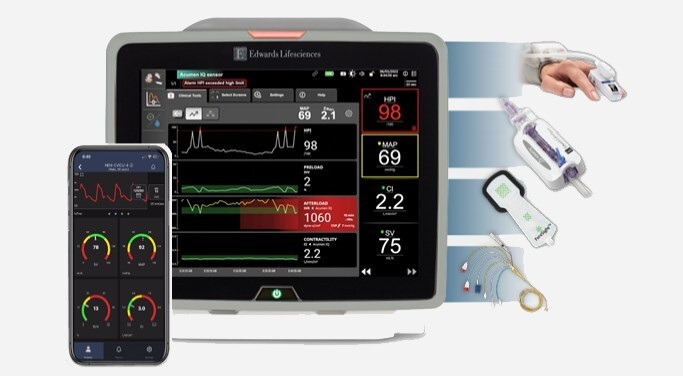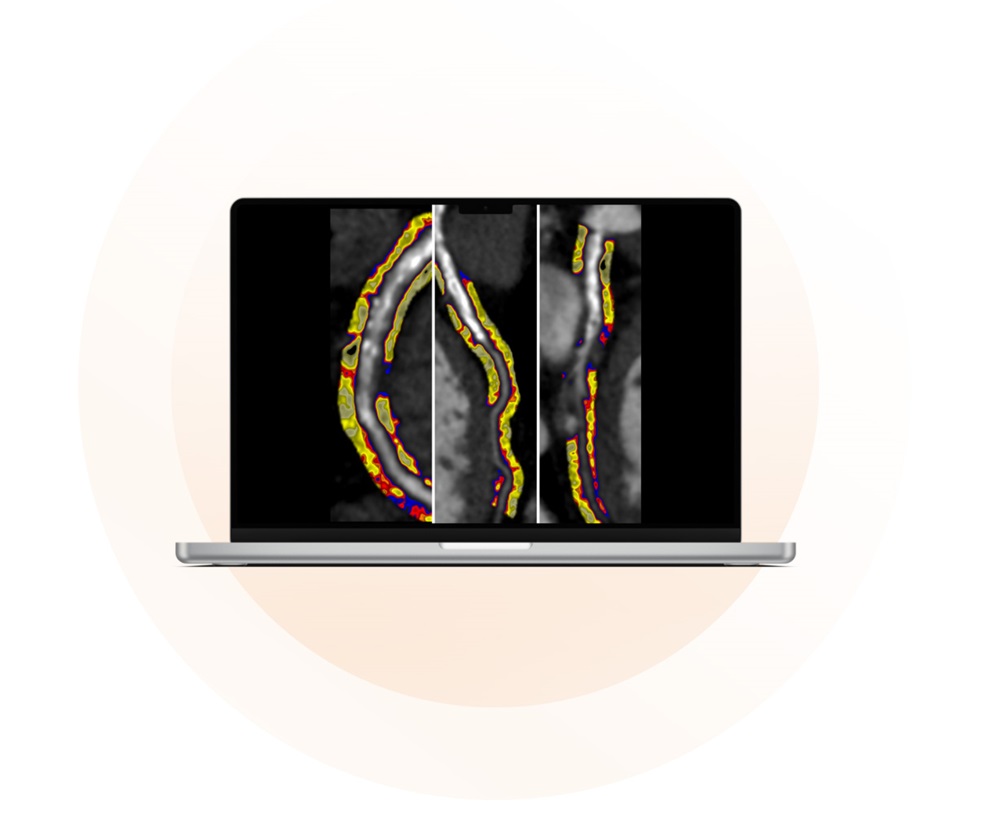Laparoscopic Surgery for Bladder Cancer Shows Good Results
|
By HospiMedica International staff writers Posted on 31 Dec 2014 |
Long-term survival rates following laparoscopic radical cystectomy (LRC) for bladder cancer are comparable to those of open surgery, according to a new study.
Researchers at Université Libre de Bruxelles (ULB; Belgium), the University of Heidelberg, (Germany), and other institutions participating in a multicenter European cohort study prospectively enrolled 503 patients who underwent LRC for bladder cancer between 2000 and 2013. The data were retrospectively analyzed to explore peri- and post-operative characteristics, evaluate recurrence-free survival (RFS), cancer-specific survival (CSS), and overall survival (OS). The outcomes were also stratified according to tumor stage, lymph node (LN) involvement, and surgical margin status.
The results showed that minor complications occurred in 39% of the cohort and major complications in a further 17%. In all, 10 (2%) postoperative deaths were recorded. After five years, 66% of patients had no signs of bladder cancer recurrence, and among those followed for 10 years, 62% had no signs of recurrence. Upon analysis, tumor stage and LN involvement were significant predictors of RFS, CSS, and OS, and positive margins were significant predictors of RFS and CSS. The study was published on December 18, 2014, in BJU International.
“These results are vital to globally evaluate the efficacy of this procedure. They suggest that a laparoscopic approach to bladder cancer, when performed correctly, can be as safe as open surgery with regards to cancer control, though maintaining the benefits of a minimally invasive approach,” said lead author Simone Albisinni, MD, of ULB. “In spite of the technical difficulty and the need for a learning curve, these findings support the use of a laparoscopic approach for the management of bladder cancer.”
Open radical cystectomy (ORC, the removal of the bladder though open surgery) is the treatment of choice for muscle invasive and high-risk non-muscle invasive bladder cancer; however, the surgery can lead to serious complications. LRC could serve an attractive treatment option for selected candidates who have localized muscle-invasive bladder cancer, with the main advantages being reduced blood loss, leading to improved recovery and shorter hospital stays after the procedure.
Related Links:
Université Libre de Bruxelles
University of Heidelberg
Researchers at Université Libre de Bruxelles (ULB; Belgium), the University of Heidelberg, (Germany), and other institutions participating in a multicenter European cohort study prospectively enrolled 503 patients who underwent LRC for bladder cancer between 2000 and 2013. The data were retrospectively analyzed to explore peri- and post-operative characteristics, evaluate recurrence-free survival (RFS), cancer-specific survival (CSS), and overall survival (OS). The outcomes were also stratified according to tumor stage, lymph node (LN) involvement, and surgical margin status.
The results showed that minor complications occurred in 39% of the cohort and major complications in a further 17%. In all, 10 (2%) postoperative deaths were recorded. After five years, 66% of patients had no signs of bladder cancer recurrence, and among those followed for 10 years, 62% had no signs of recurrence. Upon analysis, tumor stage and LN involvement were significant predictors of RFS, CSS, and OS, and positive margins were significant predictors of RFS and CSS. The study was published on December 18, 2014, in BJU International.
“These results are vital to globally evaluate the efficacy of this procedure. They suggest that a laparoscopic approach to bladder cancer, when performed correctly, can be as safe as open surgery with regards to cancer control, though maintaining the benefits of a minimally invasive approach,” said lead author Simone Albisinni, MD, of ULB. “In spite of the technical difficulty and the need for a learning curve, these findings support the use of a laparoscopic approach for the management of bladder cancer.”
Open radical cystectomy (ORC, the removal of the bladder though open surgery) is the treatment of choice for muscle invasive and high-risk non-muscle invasive bladder cancer; however, the surgery can lead to serious complications. LRC could serve an attractive treatment option for selected candidates who have localized muscle-invasive bladder cancer, with the main advantages being reduced blood loss, leading to improved recovery and shorter hospital stays after the procedure.
Related Links:
Université Libre de Bruxelles
University of Heidelberg
Latest Surgical Techniques News
- Glowing Dye Helps Surgeons to Remove Hidden Prostate Cancer Cells in Real-Time
- Early Minimally Invasive Surgery Improves Intracerebral Hemorrhage Stroke Outcomes
- Early EVD Insertion Improves Surgical Outcome in Traumatic Brain Injury
- New Machine Learning Method Better Predicts Spine Surgery Outcomes
- New Research Platform Assesses Brain Cancer Mutations during Surgery
- Off-The-Shelf Surgical Device to Help Avoid Total Knee Replacement
- Study Warns Against Dangerous Smoke Levels Produced During Endoscopic Gastrointestinal Procedures
- New Hydrogel Sealant Effective at Sealing Dural Defects and Preventing Postoperative Adhesion
- MRI-Guided Multi-Stage Robotic Positioner Enhances Stereotactic Neurosurgery Precision

- AR Visualization System Improves Surgeons’ Capabilities and Spatial Awareness
- New Adhesive Hydrogel Coatings to Prolong Lifespan of Pacemakers and Medical Implants
- Maneuvering System Empowers Surgeons with Enhanced Control during Laparoscopic Procedures
- New Two-Dimensional Material Paves Way for Safer, More Effective Implantable Medical Devices
- Portable MRI Compatible Surgical Robot Improves Patients Outcomes for Neurosurgery
- World-First Device to Remove Bacterial Biofilm Inside Endoscopes
- Minimally Invasive Imaging Technique to Revolutionize Ureteral Injury Detection
Channels
Critical Care
view channel
Machine Learning Delivers Personalized Oxygenation for Patients on Ventilators
Supplemental oxygen is one of the most commonly prescribed treatments globally, with between 13 and 20 million patients each year needing oxygen supplied via mechanical ventilation. Mechanical ventilation... Read more
New AI Algorithm Detects Rare Epileptic Seizures from EEG Data
Over 65 million people around the globe are affected by epilepsy, a neurological disorder that impacts the nervous system and causes seizures. Statistically, one in 26 individuals will experience epilepsy... Read morePatient Care
view channelFirst-Of-Its-Kind Portable Germicidal Light Technology Disinfects High-Touch Clinical Surfaces in Seconds
Reducing healthcare-acquired infections (HAIs) remains a pressing issue within global healthcare systems. In the United States alone, 1.7 million patients contract HAIs annually, leading to approximately... Read more
Surgical Capacity Optimization Solution Helps Hospitals Boost OR Utilization
An innovative solution has the capability to transform surgical capacity utilization by targeting the root cause of surgical block time inefficiencies. Fujitsu Limited’s (Tokyo, Japan) Surgical Capacity... Read more
Game-Changing Innovation in Surgical Instrument Sterilization Significantly Improves OR Throughput
A groundbreaking innovation enables hospitals to significantly improve instrument processing time and throughput in operating rooms (ORs) and sterile processing departments. Turbett Surgical, Inc.... Read moreHealth IT
view channel
Machine Learning Model Improves Mortality Risk Prediction for Cardiac Surgery Patients
Machine learning algorithms have been deployed to create predictive models in various medical fields, with some demonstrating improved outcomes compared to their standard-of-care counterparts.... Read more
Strategic Collaboration to Develop and Integrate Generative AI into Healthcare
Top industry experts have underscored the immediate requirement for healthcare systems and hospitals to respond to severe cost and margin pressures. Close to half of U.S. hospitals ended 2022 in the red... Read more
AI-Enabled Operating Rooms Solution Helps Hospitals Maximize Utilization and Unlock Capacity
For healthcare organizations, optimizing operating room (OR) utilization during prime time hours is a complex challenge. Surgeons and clinics face difficulties in finding available slots for booking cases,... Read more
AI Predicts Pancreatic Cancer Three Years before Diagnosis from Patients’ Medical Records
Screening for common cancers like breast, cervix, and prostate cancer relies on relatively simple and highly effective techniques, such as mammograms, Pap smears, and blood tests. These methods have revolutionized... Read morePoint of Care
view channel
POCT for Infectious Diseases Delivers Laboratory Equivalent Pathology Results
On-site pathology tests for infectious diseases in rural and remote locations can achieve the same level of reliability and accuracy as those conducted in hospital laboratories, a recent study suggests.... Read more
Cartridge-Based Hemostasis Analyzer System Enables Faster Coagulation Testing
Quickly assessing a patient's total hemostasis status can be critical to influencing clinical outcomes and using blood products. Haemonetics Corporation (Boston, MA, USA) has now obtained 510(k) clearance... Read more
Critical Bleeding Management System to Help Hospitals Further Standardize Viscoelastic Testing
Surgical procedures are often accompanied by significant blood loss and the subsequent high likelihood of the need for allogeneic blood transfusions. These transfusions, while critical, are linked to various... Read moreBusiness
view channel
BD Acquires Edwards Lifesciences' Critical Care Product Group for USD 4.2 Billion
BD (Becton, Dickinson and Company, Franklin Lakes, NJ, USA) and Edwards Lifesciences (Irvine, CA, USA) have entered into a definitive agreement under which BD will acquire Edwards' Critical Care product... Read more













.jpg)




